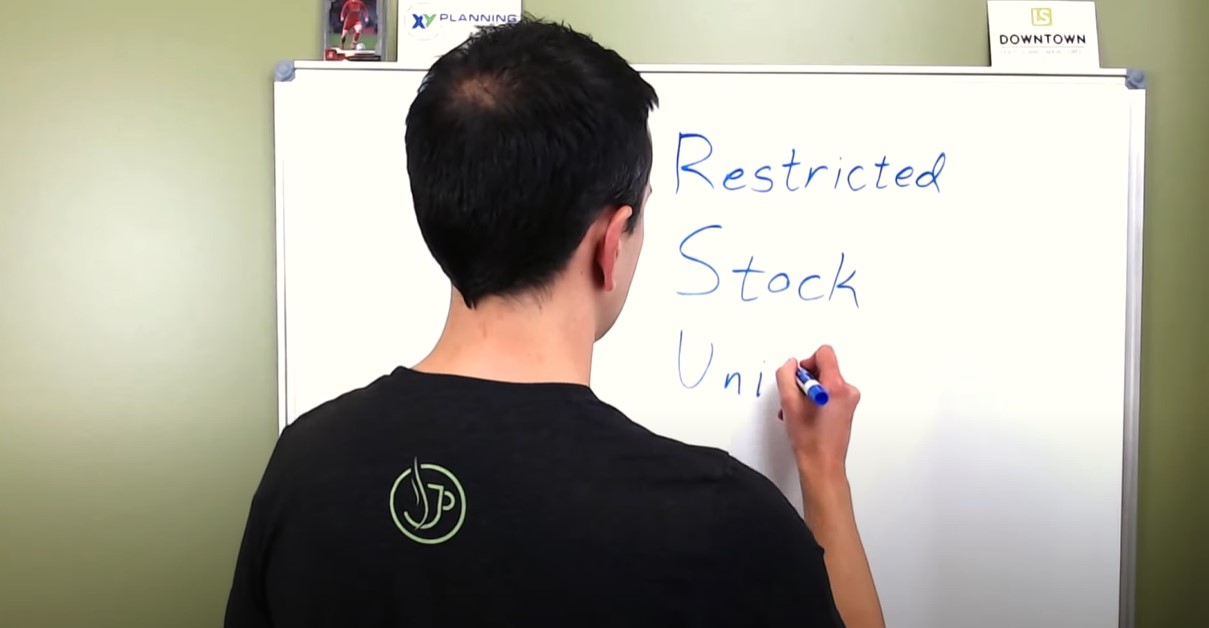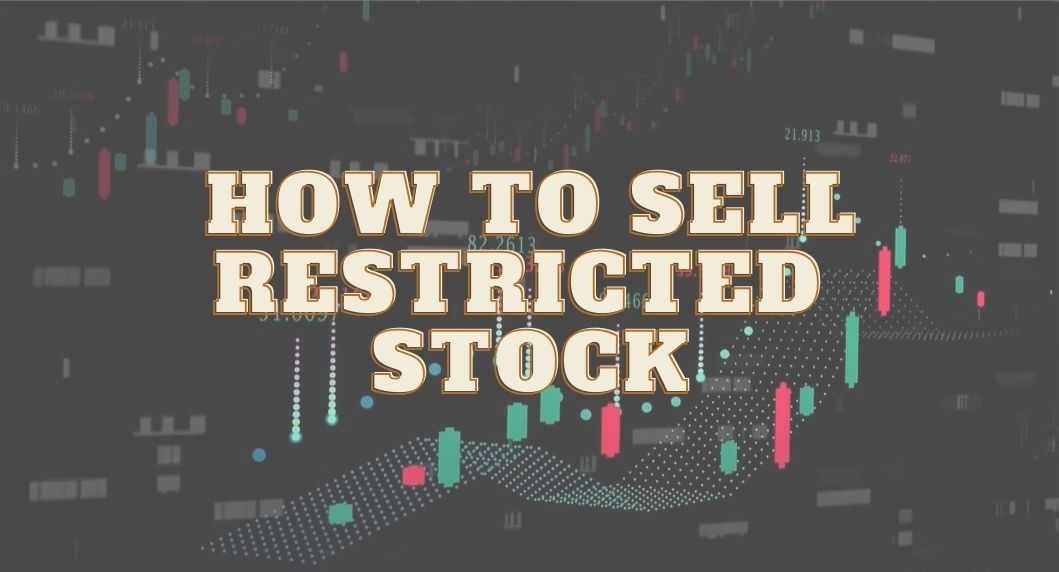Selling restricted stock, such as RSUs (Restricted Stock Units), can be a crucial part of managing your financial portfolio. Understanding the intricacies of these types of stocks and the best strategies for selling them can significantly impact your financial outcomes. At HowToSellNow.net, we aim to provide you with detailed and practical guides to help you navigate the complexities of selling various types of assets. This article will delve into the details of selling restricted stock, addressing key questions such as “can I sell restricted stock?”, “where to sell?”, and “what are the tax implications?”. Whether you’re looking to sell your RSUs on E*TRADE or another platform, this comprehensive guide has got you covered.
What is Restricted Stock?
Restricted stock, often referred to as RSUs, are shares given to employees as part of their compensation package. Unlike regular shares, restricted stock comes with certain conditions that must be met before they can be sold. These conditions typically include a vesting period, during which the employee must remain with the company.
Key Characteristics of Restricted Stock:
- Vesting Period: A specified time during which the employee must stay with the company to fully own the stock.
- Transfer Restrictions: These stocks cannot be sold or transferred until the vesting conditions are met.
- Potential for Value Increase: As part of the company’s equity, the value of RSUs can increase if the company performs well.

How to Sell Restricted Stock
Selling restricted stock involves understanding the specific rules and regulations that apply to these shares. Here’s a step-by-step guide to help you through the process:
Step 1: Understand Your Vesting Schedule
The first step in selling restricted stock is to understand your vesting schedule. RSUs typically vest over a period of time, often spanning several years. You cannot sell your RSUs until they have fully vested.
Step 2: Check the Company’s Policies
Each company has its own policies regarding the sale of restricted stock. Make sure you are familiar with these policies to avoid any potential violations. This can include blackout periods during which employees are prohibited from selling stock.
Step 3: Evaluate the Market Conditions
Before selling your RSUs, it’s important to evaluate the current market conditions. Selling during a market high can maximize your returns.
Step 4: Use a Brokerage Account
You will need to use a brokerage account to sell your restricted stock. Platforms like ETRADE are commonly used for this purpose. **How to sell RSU on ETRADE** involves setting up an account, transferring your shares, and placing a sell order.
Step 5: Consider Tax Implications
Selling restricted stock has significant tax implications. The sale of RSUs is typically taxed as ordinary income at the time of vesting, and any additional gain or loss when you sell the stock is taxed as a capital gain or loss.
Selling Restricted Stock Tax Implications:
- Ordinary Income Tax: You will owe taxes on the market value of the RSUs at the time they vest.
- Capital Gains Tax: If the stock increases in value after vesting, the additional gain will be taxed as a capital gain.
Step 6: Execute the Sale
Once you have considered all the above factors, you can proceed with executing the sale of your restricted stock. Make sure to review your order before finalizing it.
Best Practices for Selling Restricted Stock
To optimize the sale of your restricted stock, consider the following best practices:
- Diversify Your Investments: Avoid putting all your financial eggs in one basket by diversifying your investments.
- Plan for Taxes: Set aside money for taxes to avoid any surprises during tax season.
- Monitor Company Performance: Keep an eye on your company’s performance and the overall market conditions.
Frequently Asked Questions
Can I sell my restricted stock before it vests?
No, you cannot sell restricted stock before it vests. You must wait until the vesting period is complete and the restrictions are lifted before you can sell the stock.
What happens if I leave the company before my RSUs vest?
If you leave the company before your RSUs vest, you typically forfeit the unvested shares. The specific rules may vary depending on your company’s policies and your employment agreement.
How is the value of my RSUs determined?
The value of your RSUs is determined by the market price of the company’s stock on the vesting date. This value is considered taxable income.
Are there any restrictions on when I can sell my vested RSUs?
Yes, your company may impose blackout periods during which you are not allowed to sell your vested RSUs. Additionally, you must comply with insider trading regulations.
How do I know when my RSUs vest?
Your company will provide a vesting schedule when you receive your RSUs. This schedule outlines the dates on which your shares will vest.
What are the tax implications of selling RSUs?
When your RSUs vest, their market value is taxed as ordinary income. If you sell the shares later at a higher price, the additional gain is taxed as a capital gain.
Can I choose when to sell my vested RSUs?
Yes, once your RSUs vest, you can choose when to sell them, as long as you comply with any company-imposed restrictions and insider trading laws.
How do I sell my RSUs on E*TRADE?
To sell your RSUs on ETRADE, you need to set up an account, transfer your shares to the account, and place a sell order. Follow ETRADE’s instructions for selling stocks.
Is there a best time to sell my RSUs?
The best time to sell your RSUs depends on various factors, including market conditions, your financial goals, and tax considerations. It’s advisable to consult with a financial advisor.
What is a vesting schedule?
A vesting schedule is a timeline that outlines when you will gain full ownership of your RSUs. Vesting schedules can be based on time, performance, or a combination of both.
Can I transfer my RSUs to someone else?
Generally, RSUs are not transferable until they vest. After vesting, you can transfer the shares like any other stock, subject to your company’s policies and insider trading regulations.
How are RSUs different from stock options?
RSUs give you shares of stock after they vest, while stock options give you the right to purchase shares at a set price. RSUs typically have less risk compared to stock options.
Do RSUs have voting rights?
No, RSUs do not have voting rights until they vest and you actually receive the shares. Once the shares are in your possession, you gain the associated voting rights.
What should I do with my vested RSUs?
Deciding what to do with your vested RSUs depends on your financial situation, goals, and market conditions. You can sell the shares, hold them, or diversify your investments.
Are RSUs considered income?
Yes, the value of RSUs at the time of vesting is considered income and is subject to ordinary income tax. Any gain or loss upon selling the stock is considered a capital gain or loss.
Can I hold onto my RSUs after they vest?
Yes, you can hold onto your RSUs after they vest. However, keep in mind the potential for market fluctuation and the tax implications of holding or selling the shares.
Information About E*TRADE
ETRADE is a leading online brokerage firm that offers a variety of financial services, including the sale of restricted stock. Founded in 1982, ETRADE has become a trusted platform for individual investors looking to manage their portfolios. With its user-friendly interface and comprehensive tools, E*TRADE simplifies the process of selling RSUs and other types of stocks.
Key Features of E*TRADE:
- Ease of Use: E*TRADE’s platform is designed to be intuitive, making it accessible for both novice and experienced investors.
- Comprehensive Tools: The platform offers a wide range of tools to help you analyze and execute your trades.
- Customer Support: E*TRADE provides robust customer support to assist with any questions or issues you may encounter.
By following the steps outlined in this article and leveraging the tools provided by platforms like E*TRADE, you can effectively manage and sell your restricted stock, maximizing your financial outcomes. At HowToSellNow.net, we are committed to providing you with the information you need to make informed decisions about your investments.

Leave a Reply